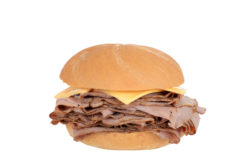 A number of major fast food chains, including Arby’s, have agreed to put a stop to their practice of having a no poaching agreement within their individual brands.
A number of major fast food chains, including Arby’s, have agreed to put a stop to their practice of having a no poaching agreement within their individual brands.
These no poaching agreements have caused problems for countless employees, as they prevent them from moving to different jobs within the same brand, which in turns limits their earning capacity. As low-paid as fast food restaurant workers often are, this can be a major financial hindrance.
Essentially, creating a no poaching agreement means that a franchisee agrees not to “steal” or “poach” an employee from another franchisee within the brand. These agreements, known as either no poaching or non-solicitation agreements, can have a serious effect on the wages and job opportunities offered to workers.
Recently, some businesses have agreed to stop using a no poaching agreement, including Arby’s, McDonald’s, Five Guys, IHOP, and more.
Basics of a No Poaching Agreement
A no poaching agreement is a method of making sure that companies within an industry aren’t competing for employees—or, in the case of such agreements by fast food franchises, within the same company. Companies may enter into an employee no poaching agreement to make sure that other stores won’t try to hire their employees out from under them. For example, an employee that worked at one Arby’s would not be allowed to be hired at another Arby’s, preventing them from lateral or even upward movement within the company.
But for employees, being able to move around in the industry can help ensure they are paid their maximum wages, or that they can move to another store that will pay them what they deserve. Employees are also better able to move upward in their industry if they are able to move stores and positions and if businesses have incentive to reward employees with higher wages or promotions.
When companies engage in these kinds of agreements, their employees may be stuck with below-market wages, lack of market competition, and less opportunity to bargain for better wages. Fortunately, there are antitrust laws meant to protect employees from this kind of no poaching agreement.
Employee poaching investigations have been launched in states all across the country.
In the backlash over no poaching agreements, a number of fast food companies have already agreed to stop using these clauses. Chain restaurants that have agreed not to use no poaching agreements include Arby’s, McDonald’s, Applebee’s, Panera Bread, and more.
Filing a No Poaching Agreement Lawsuit
A number of lawsuits have been filed against fast food franchises for allegedly participating in a no poaching agreement, leading some companies to back out and agree to stop.
If you have been affected by a no poaching agreement at a fast food company, you may be able to join a free class action lawsuit investigation. A lawsuit can help recover compensation and damages that these agreements may have incurred for employees.
Join a Free Fast Food Employee Poaching Class Action Lawsuit Investigation
If you work for McDonald’s, Jimmy John’s, Pizza Hut, Little Caesars, Papa John’s, Domino’s, Burger King or Arby’s and were prevented from moving to a different franchise that is part of the same company, you may have been the victim of a no-poach agreement. If so, you may qualify to participate in this employee poaching class action lawsuit investigation.
ATTORNEY ADVERTISING
Top Class Actions is a Proud Member of the American Bar Association
LEGAL INFORMATION IS NOT LEGAL ADVICE
Top Class Actions Legal Statement
©2008 – 2025 Top Class Actions® LLC
Various Trademarks held by their respective owners
This website is not intended for viewing or usage by European Union citizens.















One thought on Arby’s Among Fast Food Chains to Agree to End No Poaching Agreement Practice
Please add me